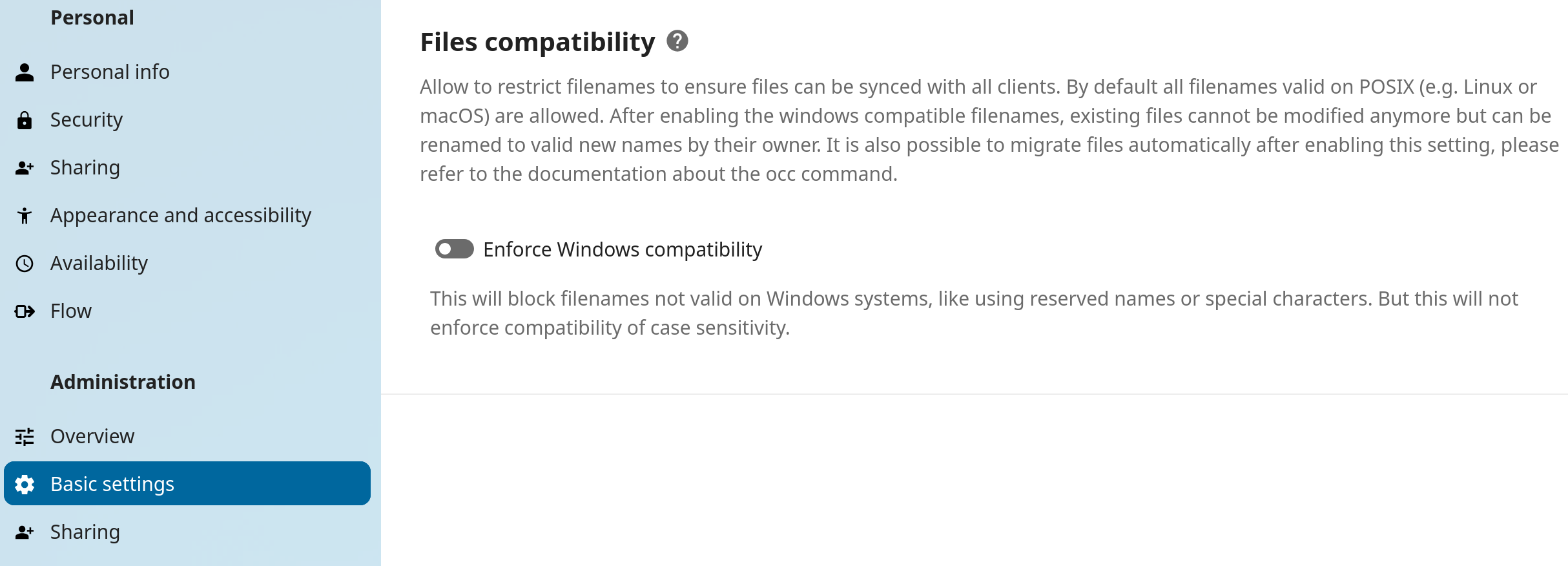Windows compatible filenames
Note
This feature was introduced in Nextcloud 31.
By default Nextcloud supports all filenames which are valid on the underlying server. As Nextcloud runs only on POSIX compatible operating systems (Linux), this means that Nextcloud supports also filenames not valid on Microsoft Windows systems.
If your users use Windows and use the Nextcloud Desktop clients to synchronize their work to their computer they might encounter files created in the web interface, or on a Linux machine, which cannot be synchronized as the filename is not valid.
To solve this issue it is possible to enforce filenames only valid on Windows,
this for example forbids characters like * from filenames
or filenames like AUX.txt (on Windows AUX is a reserved name and cannot be used).
Note
Enabling this setting will not enforce case-insensitivity as modern Windows systems support case-sensitive filenames.
Enabling Windows compatible filenames
This feature can be enabled either by using the web interface
or by using an occ command.
Note
This feature works by setting a predefined set of system configuration settings.
So after enabling this the config.php will be adjusted, which also means enabling
this feature requires a writable configuration.
Using the web interface
The setting is provided in the Administration settings under Basic settings. Within the Files compatibility section the Windows compatibility can be enabled.

Using the occ command
Note
This command was introduced in Nextcloud 32.
To quickly enable or disable the feature an occ command is provided.
Consequences
After enabling Windows compatible filenames users cannot create or modify files with invalid filenames. But they can still delete or rename those files (to valid names).
This works by setting a pre-defined set of configuration settings:
forbidden_filename_basenameswill be set to names reserved on Windows.forbidden_filename_characterswill be set to characters not valid for filenames on Windows.forbidden_filename_extensionswill be set to strings not allowed as trailing parts, like a trailing dot or spaces.
Sanitizing invalid filenames
After enabling the feature the users have to manually adjust all invalid filenames to be able to keep working with them. As an alternative Nextcloud provides the occ files:sanitize-filenames command to automatically rename all invalid files.